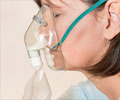- Frequently Asked Questions - (http://www.adaa.org/living-with-anxiety/ask-and-learn/faqs#n16)
About
What is anxiety attack?
Six-year old Michael’s father had left home and he never came back. The abandonment triggered his anxiety attacks. He feared being alone, feared being unloved; he feared being unwanted. Simple walking to the front of the class for setting up a presentation caused him to burst into profuse sweating, confusion and shaking. When he wasn’t suffering an anxiety attack, he was wondering when the next one would happen. The worrying and the panicking left him with barely any strength to get through the day. By age 16, he had shut down socially and the anxiety became so unbearable, he dropped out of high school. That was not the end of panic attacks. It followed him to work.

Anxiety is the inner turmoil because of the uneasy feeling that something isn’t right. Psychologists say that anxiety to a certain extent is actually good for you. It is helpful in the sense it prepares you to act quickly in the face of danger; it makes you focus better on the task ahead or makes you ready to cope with upcoming negative events. But when anxiety is overwhelming or it is persistent, it becomes a mental disorder.
This is then called panic attack or anxiety attack in which you have repeated attacks of intense fear that something bad will happen. The attack comes on suddenly and its duration can vary from minutes to hours leaving a lasting imprint on your mind. Recurrent panic attacks that interfere with your daily activities can lead to a medical condition called panic disorder. It can make a negative impact on your self confidence.
Anxiety attack occurs in both, women and men, but it is twice as common in women as it is in men. Symptoms often begin in the early twenties. Children, too, can have panic disorder but it is often not diagnosed until they are older.
Anxiety attack can be cured and the sooner you seek treatment the better it is. If it is not treated in time it may lead to physical health problems, too.















